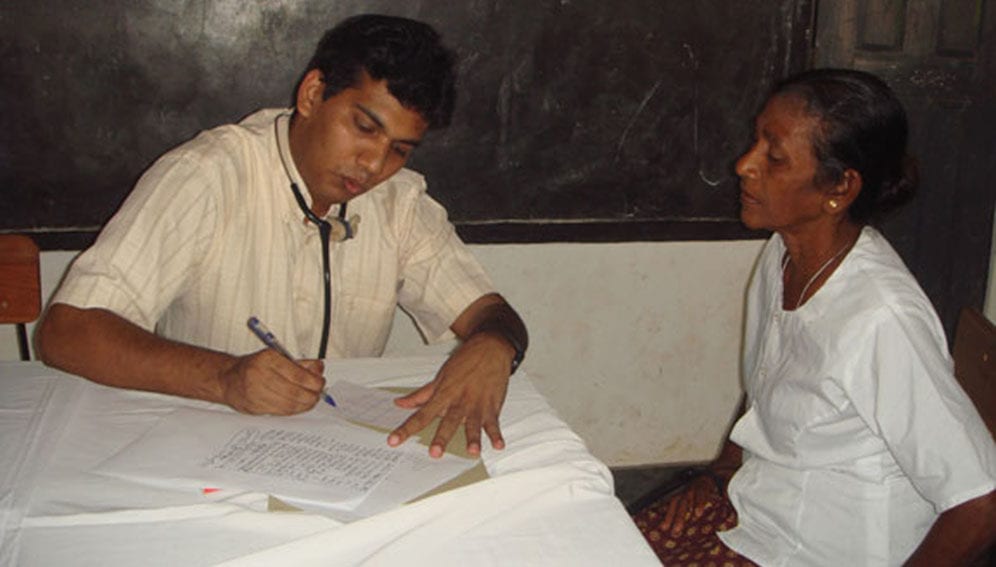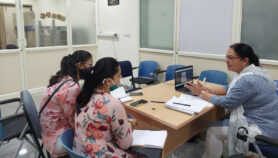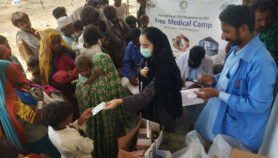19/09/18
Sri Lanka’s high non-communicable diseases toll

By: Saleem Shaikh
Send to a friend
The details you provide on this page will not be used to send unsolicited email, and will not be sold to a 3rd party. See privacy policy.
[ISLAMABAD] Non-communicable diseases (NCDs) are taking a heavy toll on Sri Lanka’s labour force and deepening household poverty and hunger, says a new study.
Non-communicable diseases account for 75 per cent of all deaths in Sri Lanka while a fifth of all premature deaths is due to NCDs caused by tobacco use, unhealthy diets, harmful use of alcohol and physical inactivity, according to WHO reports.
“On average, employment likelihood, labour supply, and labour earnings of NCD patients are significantly lower than those of non-NCD individuals”
Ajantha Sisira Kumara, University of Sri Jayewardenepura
The new study, published this month (September) in Economics and Human Biology, relies on self-reported health survey data of the labour force. It warns that NCDs can escalate the country’s unemployment burden and household health spending and poverty.
“Analysing the data, we discovered that NCDs shrink individual labour supply by more than 80 per cent and labour incomes by over 90 per cent,” says Ajantha Sisira Kumara, a study author and senior lecturer in public administration at the University of Sri Jayewardenepura, Colombo.
“Our findings show that those with at least one non-communicable disease account for around 19 per cent of the working-age population,” says Kumara. “On average, employment likelihood, labour supply, and labour earnings of NCD patients are significantly lower than those of non-NCD individuals.”
Limited government health allocations (around four per cent of GDP), inadequate social security, and increasing household out-of-pocket expenses for healthcare are among issues linked to NCDs highlighted in the Sri Lankan study.
“Households with NCD prevalence compromise on the basic needs of food, housing and clothing and such burden on poorer households is higher than richer ones because richer households have the option of sacrificing more from non-basic needs to cope with NCDs,” says Kumara.
As part of the UN’s 2030 Agenda for Sustainable Development, countries are committed to have national responses to lower by one-third premature mortality from NCDs through prevention and treatment .
Former Sri Lanka Medical Association president Chandrika Wijeyaratne says that because NCDs are not inevitable, timely actions can trigger myriad future benefits including healthy aging, lower likelihood of disabilities, and longer and more productive lives.Measures such as heightened investment in NCD prevention and control, establishing national NCD surveillance, sustained access to screening and medication, especially for the poor, tackling undernutrition and overnutrition and developing public–private partnerships for prevention and control can effectively help address the NCD burden, Wijeyaratne says.
Thalatha Liyanage, former director of the NCD unit of Sri Lanka’s ministry of health, says a national action plan is already being implemented. “Under the plan, strategies involving public awareness measures to reduce major risk factors such as smoking, alcohol use, obesity, unhealthy diets and sedentary lifestyles are being implemented through the existing health networks,” he says.
This piece was produced by SciDev.Net’s Asia & Pacific desk.













